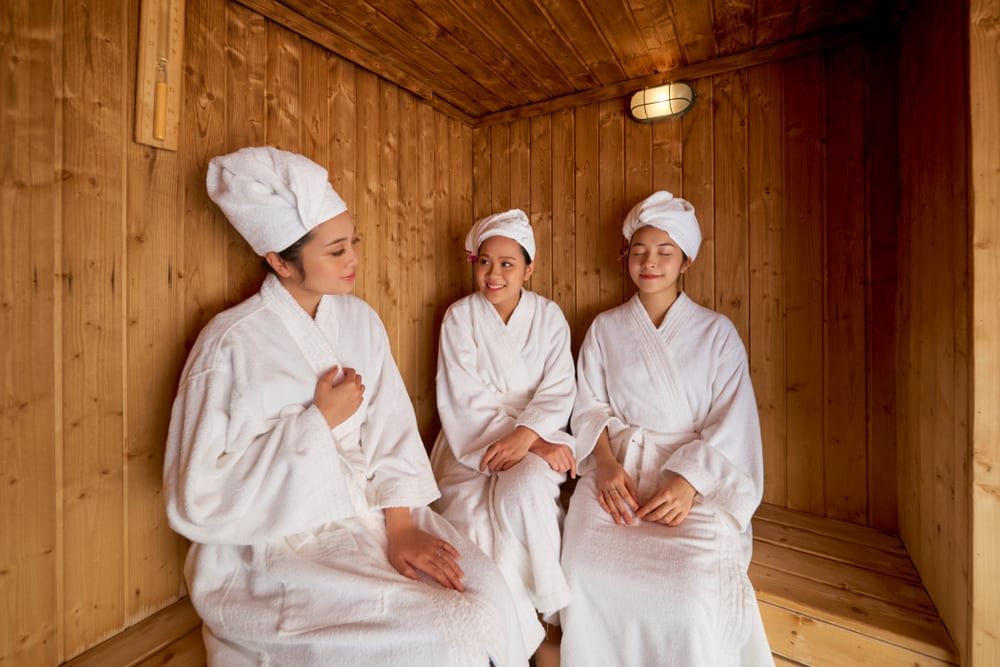In this era, when traveling becomes affordable to most and the world becoming a small global village, it is important to educate ourselves on certain customs whenever we navigate. Of course, we do not want to offend our hosts and labeled discourteous because we are ignorant of their unique customs. Knowing these can even be a bridge for a long-lasting friendship.
1. Do not Decline a Sauna Invitation in Finland

Don’t be surprised if you get a sauna invitation in Finland. It is not uncommon to have a sauna in this Scandinavian country as a way to strengthen interpersonal relationships among family and friends. What more if this is offered after a business meeting, which means a sweet success.
2. Be Aware When Giving Flowers in Russia

Russians are serious about the connotation of yellow flowers. Beware, as it means treachery to them and well, it also signifies that the relationship is over. Red Carnations, likewise, is not to be presented to a friend because these are offered on the graves or given to living war veterans.
3. Don’t Expect Appreciation for These Simple Gifts When in China

The uniqueness of Chinese beliefs and traditions can be puzzling in so many ways than one. Don’t you dare give gifts such as clocks, straw, sandals, flowers and handkerchiefs as these are all pertaining to death and funerals. Otherwise, you’ll strain your relationship to them.
4. In Greece, Extracted Baby Tooth Are Tossed to the Roof

A belief shared in some parts of the Philippines, Greeks would throw their baby tooth to the roof. The act allows them to believe for good tidings and healthy permanent ones.
5. Don’t Sprinkle Salt on Your Meal in Egypt

Egyptians, like most Arabs, are hospitable. However, you have to conceal your dissatisfaction when you think the meal they served is bland as sprinkling a salt can be offensive to them.
6. Don’t Forget to Use Knife and Fork When Eating in Norway

If you love eating with your hands to feel the food, not so in this small Scandinavian nation. Whatever meal is served, the use of a knife and fork is a must. They truly value table manners with these two utensils.
7. It’s OK to be Late in Venezuela

Truly unusual but showing up on time over meal’s invitation in this South American country can be misconstrued as being too eager, let alone, greedy. It is always better to show up 10 to 15 minutes later than the agreed time.
8. Sharp-edge Gifts are a Big No in Netherlands

While women, especially, mothers in some parts of the world would revel on a fancy kitchen knives or scissors as presents, in the Netherlands, these are not welcomed. To them, sharp, pointed objects as gifts are a sign of bad luck.
9. Don’t Tinkle and Guzzle During a Drinking Spree in Hungary

While tinkling glasses and guzzling beer or wine is common in most countries, not so in Hungary. This has something to do with their war with Austria in 1849. History has it that thirteen of Hungary’s mighty military leaders were brutally killed because of this old custom.
10. Do not Insist to Pay Your Meal in with Your Host in Turkey.

You are lucky if you have a Turkish host as he would pay your meal. Although, you can repay them the next time they invite you just to reciprocate the gesture.
11. Red Ink? Not for a Birthday Note in South Korea

K-Pop fans should know this! Use any colored pen, except red, when writing a birthday note for your favorite K-Pop star or a South Korean friend, for that matter. Because traditionally, red is for the dead!
12. Use Your Chopstick Well in Japan

Anyone who has been to Japan understands their politeness as a nation. That extends to their table etiquettes, especially on the use of chopsticks. Do not use the pointed end to get food from a shared plate as it is considered uncouth and unhygienic. Use the blunt end instead.
13. Do not do Business Over a Meal in Bolivia

It is considered impolite to talk about business or business deals during a dinner or lunch in Bolivia or even on social occasions. To them, sharing a meal is supposed to deepen interpersonal relationships. As such, Bolivians would rather talk about family over other topics.
